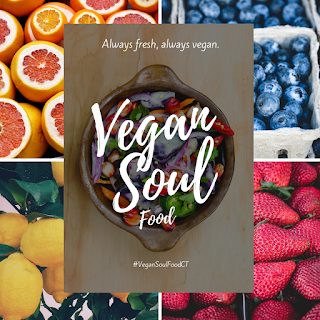Protein Sources from Plants 🌱
Many people believe that animals are the main way to consume protein, yet there are many healthier, plant-based protein sources available.
1. Black Beans
Protein content: 1 cup = 15 g
Black beans also have fiber, potassium, folate, vitamin B6 and lots of phytonutrients.
(* Canned beans are hard to digest as they will contain phytic acid which is hard to break down with people who have comprised digestion. Phytic acid impairs the absorption of iron, zinc and calcium. It may contribute to mineral deficiencies over time, but this is rarely a problem for those following well-balanced diets. All Beans contain oligosaccharides, a sugar that’s hard to digest.)
Black beans and lentils are the easiest beans to digest.
Great in: Tacos, Veggie Burgers, Chili, Soup
2. Lima Beans
Protein content: 1 cup = 14g protein
Lima Beans provide a great source of minerals, such as iron, copper, manganese, calcium and magnesium. (They are also the ‘beans that have the most potassium’.)
Great for: Veggie Burgers, Soup
3. Almonds
Protein content: 1/4 cp = 12g protein in ¼ cup serving of almonds
Almonds are rich in energy (574 calories per 100g) and contain nutrients, minerals, antioxidants and vitamins that are essential to your body.
Great for: Salads, Snacking, Almond Milk
Almond butter is a great alternative to Peanut Butter. Almond Butter goes great with apples, pears, bananas, smoothies, or oatmeal.
4. Quinoa
Protein content: 1 cp = 8 grams
Quinoa is gluten-free, high in protein and one of a few plants that contains all nine essential amino acids. Quinoa is high in fiber, magnesium, B-vitamins, iron, potassium, calcium, phosphorus, Vitamin E and many crucial antioxidants. Quinoa also has a very low glycemic index, which is good for blood sugar control.
Great for: Quinoa is wonderful in salad, stews & soups. You can also substitute quinoa for ground beef in a burger.
5. Buckwheat
Protein content: 1 cp = 6 grams
Contrary to its name, buckwheat is actually a fruit seed and not related to wheat. Energizing. Buckwheat is a gluten-free power food and a great source of easily-digestible proteins.
Buckwheat contains minerals including: manganese, copper, magnesium, & phosphorus.
Great for: Pancakes, Granola, Cereal
6. Soybean
Protein content: 1 cp = 18g
Soybeans contain a lot of essential amino acids. It’s important to choose
“Organic” Soybeans, as many soybeans in America are Genetically Modified. Soy also contains a lot of “B-Vitamins”.
Great for: Meat & Dairy Subsitutes
7. Organic Tempeh
Protein content: 100 g Tempeh = 20g of protein
Tempeh is a rich source of complete protein. It is made by fermenting cooked soybeans and shaping it into a dense cake that can be sliced and pan-fried like
tofu. Tempeh contains more fiber and protein than tofu, and because it’s been
fermented, it’s easier to digest (than ‘Soy’).
Great for: Meat substitutes. Great for marinating, due to its dense consistency.
8. Hemp Seed
Protein content: 100 g = 31g of protein
Hemp seed contains all 22 known amino acids. (This includes 9 essential aminos that our body cannot produce on it’s own and must take from dietary sources.) Hemp is pexcellent 3:1 balance of omega-3, and omega-6 fatty acids. Hemp seeds are also high in magnesium, a mineral that helps with relaxation, blood sugar control and blood pressure.
Great for: Smoothies, Cereals
9. Hummus
Protein content: 100g = 8 grams
Hummus is a great source of dietary fiber and is a low-glycemic index food. You can make hummus with a can of chickpeas, a garlic clove, extra virgin olive oil, tahini, lemon juice and salt. Blend all ingredients.
Great for:: Veggie Dip, Sandwich Spread
10. Jackfruit
Protein content: 1 cup = 3 gram
Young jackfruit actually looks like meat and offers high levels potassium, calcium and iron. It has a very mild flavor
Great For: Vegan tacos, nachos, pulled ‘pork’ sandwiches, Tex-Mex, curry, and Asian dishes.






